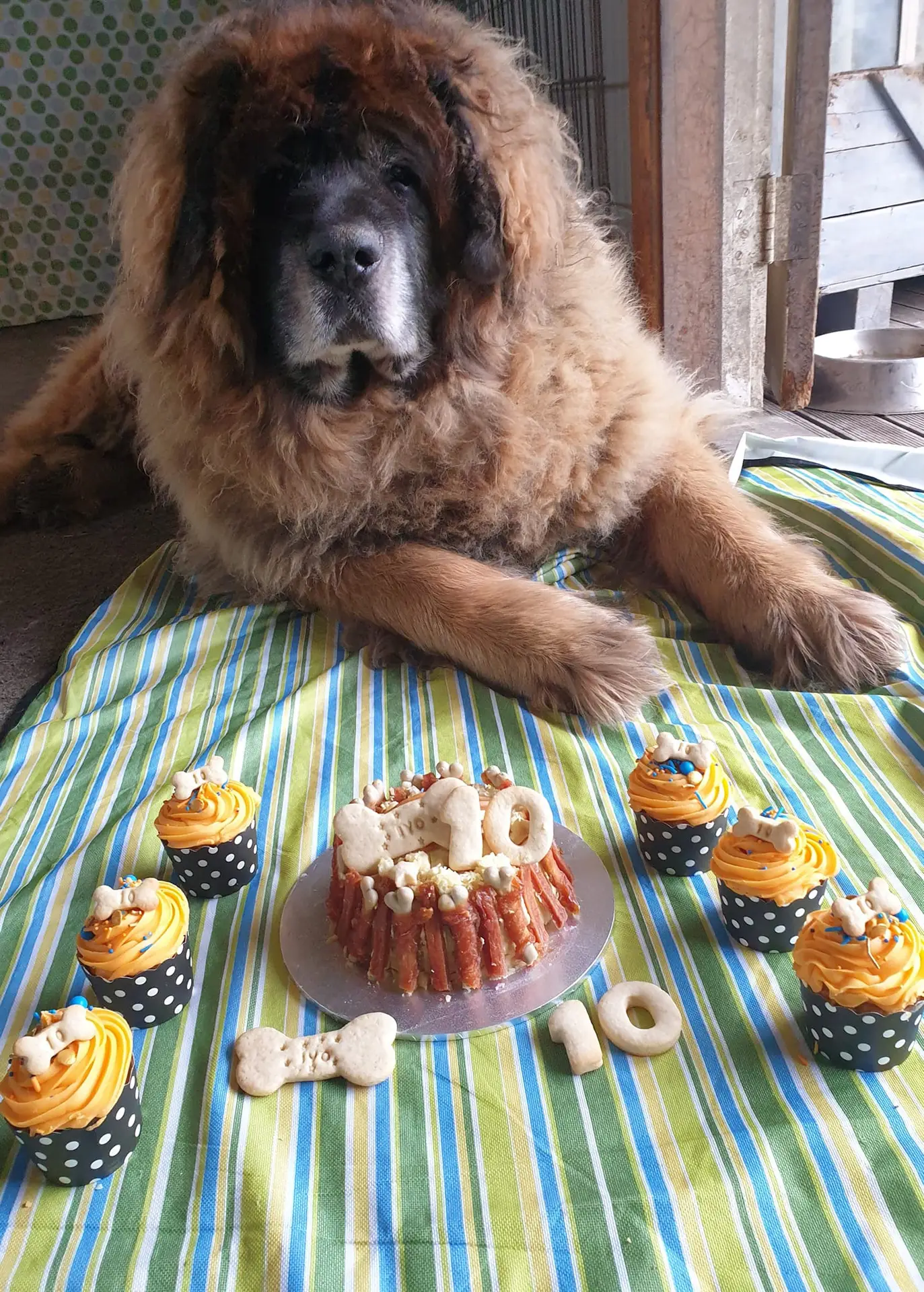Leonbergers are gentle giants—renowned for their majestic presence, loyal nature, and deep devotion to their families. At Leonrua, we are passionate about the long-term health and wellbeing of every Leonberger we breed. While the breed is generally robust, their size and genetic makeup can make them susceptible to certain health issues.
Being informed and proactive is key to giving your Leonberger the longest, healthiest life possible. Below, we explore the most common health concerns in the breed—and how we work diligently to prevent them through responsible breeding, nutrition, and education.
1. Hip and Elbow Dysplasia
What It Is:
Hip and elbow dysplasia occur when joints develop abnormally, leading to pain, stiffness, and arthritis. These are common in large and giant breeds.
Prevention and Management:
- World-Class Screening: At Leonrua, we use PennHIP—a leading-edge diagnostic method—to screen for hip dysplasia. All our dogs are free of hip dysplasia, and several rank in the top 5% of Leonbergers worldwide for hip health.
- Elbow Scores: We use the Lavelle scoring system for elbows, and all our dogs have excellent elbow scores.
- Weight Management: Keeping your dog lean helps reduce joint stress.
- Joint Supplements: Our dogs receive daily glucosamine, chondroitin, and MSM to maintain healthy joints.
- Low-Impact Exercise: Controlled physical activity, especially during growth periods, supports joint integrity.
2. Polyneuropathy (LPN) and Leukoencephalomyelopathy (LEMP)
What They Are:
LPN is a degenerative nerve disease that affects mobility and coordination. LEMP is a rare neurological condition that can affect young dogs.
Prevention and Management:
- Genetic Assurance: All Leonrua breeding dogs are N/N (clear) for LPN1, LPN2, LPPN3, and LEMP, meaning they do not carry or pass on these conditions.
- Ongoing Monitoring: We actively follow new research and health trends to protect the integrity of our breeding lines.
- Supportive Care: While we don’t produce affected dogs, we encourage all owners to seek veterinary care promptly if any neurological symptoms appear.
3. Osteosarcoma (Bone Cancer)
What It Is:
Osteosarcoma is a fast-developing bone cancer seen more often in large breeds. It typically affects the limbs and presents as swelling or lameness.
Prevention and Management:
- Early Recognition: Any unexplained lameness or swelling should be investigated immediately.
- Healthy Lifestyle: Providing a balanced diet and maintaining a lean physique can reduce inflammation and support bone strength.
- Routine Check-Ups: Annual veterinary examinations help detect abnormalities early.
4. Gastric Dilatation-Volvulus (Bloat)
What It Is:
Bloat is a critical emergency where the stomach fills with gas and can twist, cutting off blood supply. Leonbergers, with their deep chests, are at elevated risk.
Prevention and Management:
- Multiple Small Meals: Feed your dog twice a day instead of once.
- Avoid Exercise Around Meals: No running or rough play right before or after eating.
- Use Slow Feeders: These reduce the risk of gulping food and swallowing excess air.
- Know the Warning Signs: Restlessness, drooling, a swollen abdomen, and unsuccessful attempts to vomit—if seen, seek emergency veterinary help immediately.
5. Eye Conditions: Cataracts, Entropion, Ectropion
What They Are:
- Hereditary Cataracts can cause vision loss.
- Entropion involves the eyelid rolling inward.
- Ectropion causes the lower eyelid to sag outward.
Prevention and Management:
- Certified Eye Testing: All Leonrua dogs undergo eye examinations and are clear of hereditary cataracts.
- Thoughtful Breeding: We avoid using dogs with poor eyelid structure.
- Veterinary Oversight: Annual exams help detect and treat eye issues early.
6. Dilated Cardiomyopathy (DCM)
What It Is:
DCM affects the heart muscle, weakening its ability to pump blood. It can have a genetic basis or be linked to nutritional deficiencies.
Nutrition-Linked Concerns:
Recent studies, including those by the FDA, have raised concerns about grain-free diets, especially those high in peas, lentils, and legumes, being potentially linked to diet-associated DCM. While the research is ongoing, diets where peas appear among the first five ingredients are under scrutiny.
Prevention and Management:
- No Grain-Free, Pea-Heavy Diets: At Leonrua, we avoid grain-free foods, especially those high in peas, lentils, and chickpeas.
- Quality Nutrition: We use complete, balanced diets from trusted sources with veterinary nutritionist input.
- Fish Oil Supplements: All our dogs receive daily fish oil to support heart and coat health.
- Watch for Symptoms: Coughing, fainting, and fatigue should be promptly assessed by a vet.
7. Skin, Coat, and Dietary Wellness
Common Issues:
Leonbergers may develop allergies, hot spots, or dry coats without the right nutrition and grooming.
Prevention and Management:
- Nutrient-Rich Diet: Our dogs enjoy a diet rich in beef, fish (white and salmon), and specialist meat mixes.
- Daily Egg: Each Leonrua dog gets a whole egg daily, providing protein, biotin, and healthy fats for coat and muscle health.
- Fresh Produce: We regularly feed our dogs carrots, apples, blueberries, and strawberries, which they often pick themselves from the garden!
- Fish Oil Daily: Essential omega-3s help keep skin healthy and reduce inflammation.
- Regular Grooming: Brushing several times a week promotes a healthy coat and early detection of skin issues.
Final Thoughts
At Leonrua, health is the foundation of everything we do. Through:
- Comprehensive genetic testing (LPN1, LPN2, LPPN3, LEMP – all N/N),
- Advanced joint scoring (PennHIP for hips, Lavelle system for elbows),
- Certified eye testing for hereditary cataracts,
- And a thoughtfully designed, nutrient-rich diet—
—we are proud to raise Leonbergers of sound mind, strong body, and gentle spirit.
Preventing health issues begins with knowledge and continues with care. We’re here to walk every step of that journey with our puppy families.
Questions about Leonberger health or our breeding programme? Contact us or explore more insights on our blog.
#LeonruaLeonbergers #HealthyLeonbergers #LeonbergerHealth #ResponsibleBreeding #GiantBreedCare




